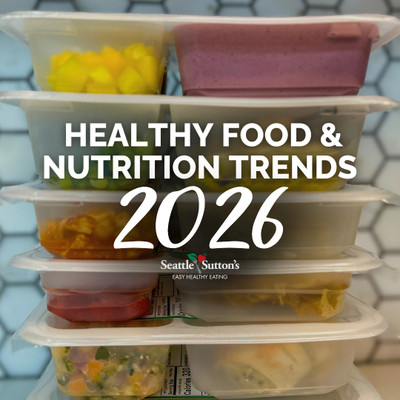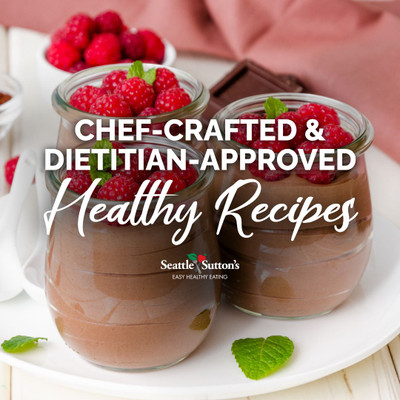Fueling Your Body Before, During and After Breast Cancer Treatment
Here at Seattle Sutton's Healthy Eating, we work hard TOGETHER every day to provide our customers with healthy and nourishing meals. This month is a great opportunity to speak about Nutrition and how it pertains to Breast Cancer. This year’s theme, "Together We RISE", supports us mentally, emotionally and spiritually, which is very important! Research shows that when you add healthy nourishment and physical activity into that equation, your chances of survival increase. Healthy nourishment and physical activity are key to many diseases; breast cancer is no different. Here are some Healthy Breast Cancer tips for before, during and after treatments.
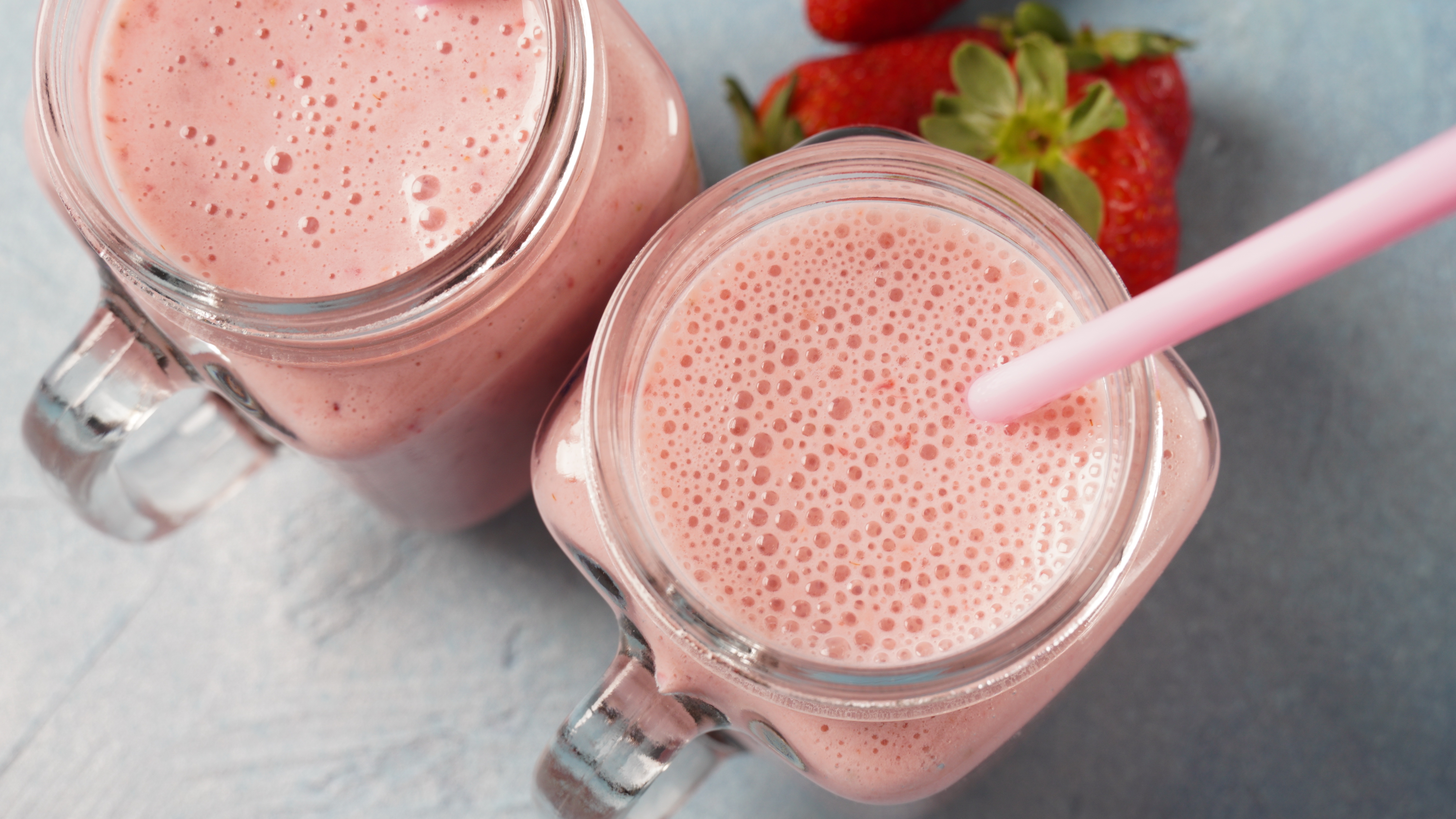
Before Treatment
Once diagnosed with breast cancer it is important to know that the diet you might need to follow is a little different from what you think of as “healthy”. For most people, a healthy diet includes a lot of fruits, vegetables, and whole grain breads and cereals, modest amounts of meat and milk products, and small amounts of fat, sugar, alcohol, and salt. However, once you’ve been diagnosed, the most important thing to eat is ‘whatever you can’ to keep your strength up to help deal with the side effects of treatment. When you are healthy, eating enough food is often not a problem. But when you are dealing with cancer and treatment, this can be a real challenge. When you are diagnosed with cancer, you may need extra protein and calories. At times, your diet may need to include extra milk, cheese, and eggs. If you have trouble chewing and swallowing, you may need to add sauces and gravies. If you experience gastrointestinal issues, such as diarrhea or vomiting, you may need to eat low-fiber foods instead of those with high fiber. A dietitian can help you with any diet changes you may need to make.
To get started:
- Fill your fridge, cupboard, and freezer with healthy foods, including items you can usually eat when you feel sick.
- Stock up on foods that need little or no cooking, such as ready-to-eat cooked foods.
- Cook foods ahead of time and freeze in meal-sized portions.
- Ask friends or family to help you shop and cook during treatment. Maybe a friend or family member can set up a schedule of food deliveries you can depend on. You can also create a grocery list of your favorite foods so that it is easy for friends and family to shop for you. Remember, “Together we RISE”.
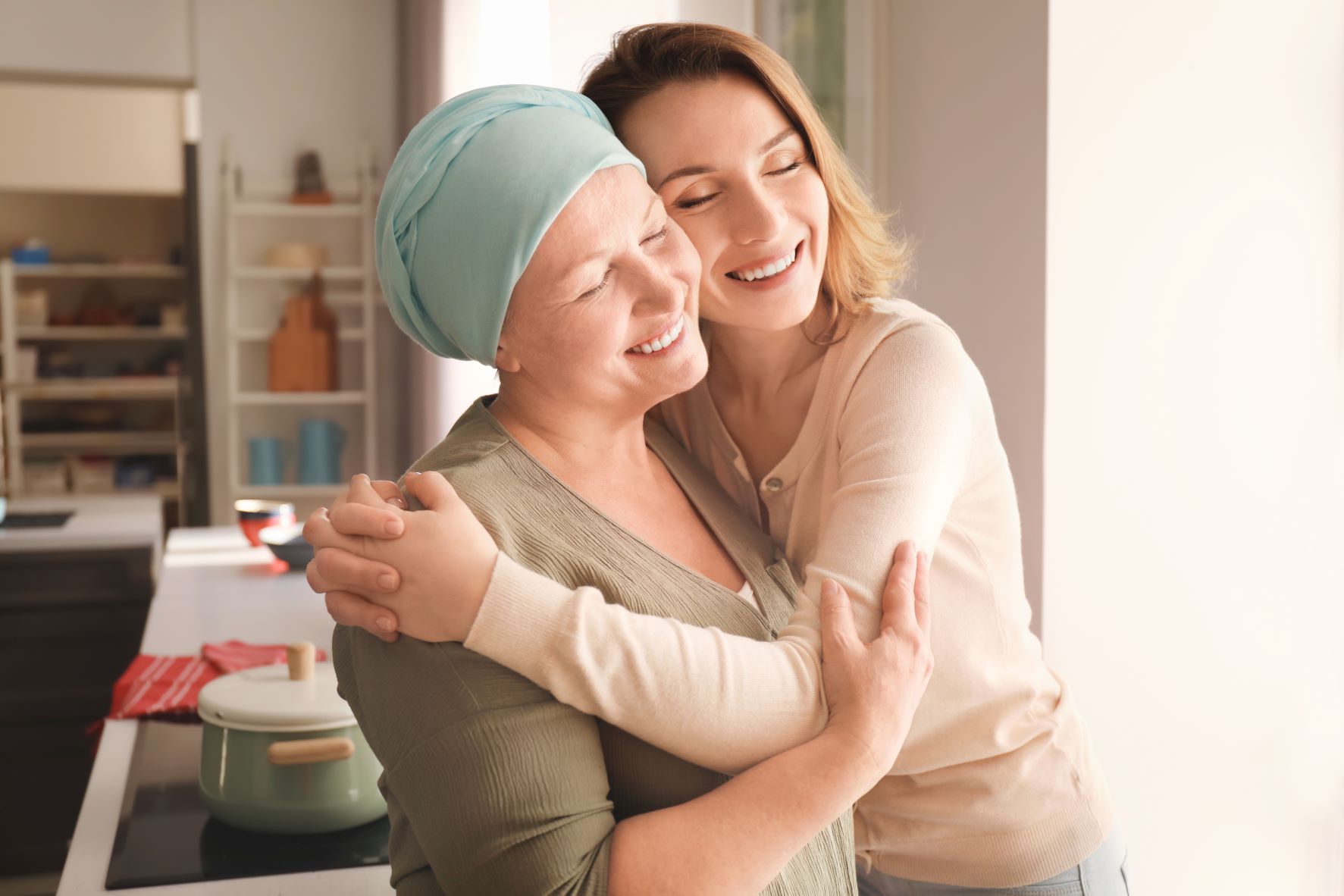
During Treatment
Once you’ve started your treatments, the side effects can lead to eating challenges. Cancer treatments are designed to kill cancer cells. However, these treatments can also damage healthy cells. Damage to healthy cells can cause side effects that lead to eating problems such as appetite loss, nausea, constipation, diarrhea, sore mouth, taste or smell changes, trouble swallowing, sore throat, vomiting, weight loss or weight gain, and lactose intolerance. Some people have appetite loss or nausea due to stress about cancer and treatment. Usually, once people know what to expect, they often feel better.
During treatment, you may have good days and bad days when it comes to food. Here are some ways to manage:
- Eat plenty of protein and calories ‘when you can’ to help you keep up your strength and to rebuild tissues harmed by cancer treatment.
- Eat when you have the biggest appetite. For many people, this is in the morning. Patients report that eating a bigger meal early in the day and drink liquid meal replacements later on works well.
- Do not worry if you can’t eat a lot of different foods. Eat the foods that sound good until you are able to eat more, even if that means eating the same thing again and again. You might also drink liquid meal replacements for extra nutrition.
- Do not worry if you cannot eat at all some days. Spend this time finding other ways to feel better and start eating when you can. Tell your doctor if you cannot eat for more than 2 days.
- Drink plenty of liquids. It is even more important to drink plenty on the days when you cannot eat. Drinking a lot helps your body get the liquid it needs. Most adults should drink 8 to 12 cups of liquid a day. A good idea is to keep a water bottle nearby and remember that broth soups, popsicles, ice cream, sherbet and Jell-O count towards your liquid

After Treatment
Once you finish cancer treatment, many of your eating challenges will subside. Some eating problems, such as weight loss and changes in taste or smell, may last longer than your course of treatment. When you are feeling up for it, this is the time to start introducing a healthy diet back into your life.
According to the American Institute for Cancer Research, breast cancer survivors’ diets can help them live longer. With the increasing survival rates of people with breast cancer, there has been a large amount of research on how diet played a role in survival. One of the major risks Breast cancer survivors face is an increased risk of heart disease. A low-fat diet and a diet full of whole grains, spices, healthy fats and vegetables, may help lower the risk of cardiovascular disease mortality than those survivors who eat a typical American diet of fried and processed foods.
It is true that healthy eating by itself cannot keep cancer from coming back, but it can help you regain strength, rebuild tissue, and improve how you feel after treatment ends. Here are some ways to eat well after treatment ends:
- Prepare yummy simple meals that are easy to make.
- Cook 2 or 3 meals at a time and put in freezer to eat later.
- Order healthy and fresh prepared meals by Chef Marcus from Seattle Sutton’s Healthy Eating!.
- Purchase already cut-up fruits and vegetables.
- During recovery, variety is key. Eat many different kinds of foods to provide your body with all the vitamins and nutrients you need.
- Eat lots of fruits and vegetables, including raw and cooked vegetables, fruits, and fruit juices. These all have vitamins, minerals, and fiber.
- Eat whole wheat bread, oats, brown rice, or other whole grains and cereals to get the needed complex carbohydrates, vitamins, minerals, and fiber.
- Add beans, peas, and lentils to your diet and eat them often.
- Go easy on fat, salt, sugar, alcohol, smoked or pickled foods, and processed meats.
- Choose low-fat milk products.
- Eat small portions (6-7oz each day) of lean meat and poultry without skin.
- Limit red meat to 18oz per week.
- Use low-fat cooking methods, such as broiling, steaming, grilling, and roasting.
- Limit alcohol to 1 drink per day for women and 2 drinks per day for men
Once you’ve started your treatments, the side effects can lead to eating challenges. Cancer treatments are designed to kill cancer cells. However, these treatments can also damage healthy cells. Damage to healthy cells can cause side effects that lead to eating problems such as appetite loss, nausea, constipation, diarrhea, sore mouth, taste or smell changes, trouble swallowing, sore throat, vomiting, weight loss or weight gain, and lactose intolerance. Some people have appetite loss or nausea due to stress about cancer and treatment. Usually, once people know what to expect, they often feel better.
Physical Activity Before and After Breast Cancer
There is also research that suggests that being physically active both before and after a breast cancer diagnosis improved survival. The guidelines recommend that adults engage in at least 2.5 to 5 hours of moderate-intensity physical activity or 1.25 to 2.5 hours of vigorous-intensity aerobic physical activity per week. Women with breast cancer who reached the minimum physical activity guidelines before diagnosis and at a 2 year follow-up after treatment had a 55% reduced chance of their cancer returning and a 68% reduced chance of pre-mature death from any cause, not just breast cancer, compared with those who did not meet the guidelines at both time. Just another reason to make sure we get up and move our bodies daily!

Six years ago, Seattle wrote a very hope-filled Breast Cancer Message in which she says, “Why do I share my story? Simple- it’s to give others hope of survival, to know how well I’m doing and going strong. I attribute my good health to healthy eating, staying active and being positive. I am 84 years young, and I have so much to do. I used to say I would retire at 90, then I pushed it back to 100… perhaps I will have to push it back again.” Thank you Seattle for your gift of Healthy Eating!
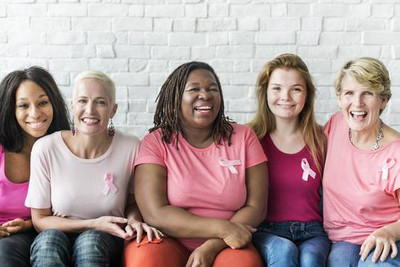


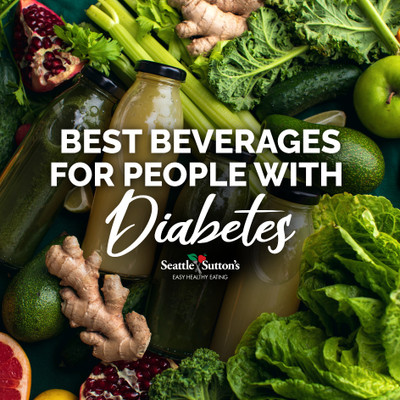



 Weight Loss
Weight Loss Health & Wellness
Health & Wellness Diabetes
Diabetes Heart Health
Heart Health Motherhood & Family
Motherhood & Family Dietary Restriction
Dietary Restriction Other Health Conditions
Other Health Conditions About SSHE
About SSHE
